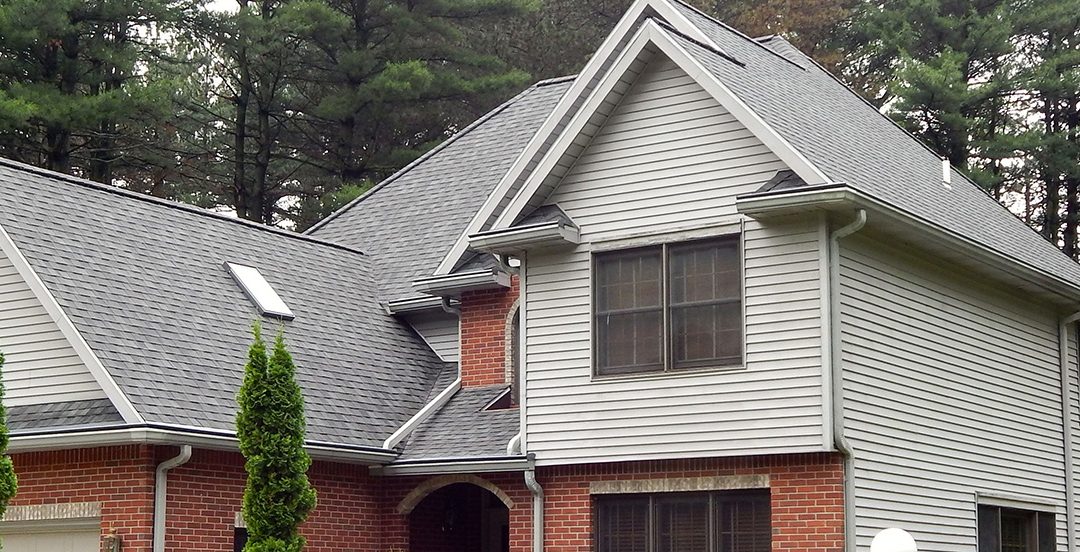As communities across the globe continue to focus on sustainable living and eco-friendly practices, homeowners are seeking ways to contribute to this movement, enhancing their properties with environmentally conscious improvements. One of the lesser-known green upgrades that can positively impact the environment is the installation of a gutter protection system. In this post, we will highlight the eco-friendly advantages of gutter protection systems and explain how investing in one can contribute to water conservation and a greener home in 2024.
Gutter protection systems not only offer significant benefits to homeowners in terms of maintenance reduction and property protection, but they also provide ecological advantages that can help make our homes more sustainable. One of the primary environmental benefits related to gutter protection is water conservation, as utilizing these systems can help repurpose collected rainwater for various uses around the home, such as gardening or maintaining landscapes. By investing in gutter protection, homeowners can actively contribute to conserving water and minimizing waste.
Another aspect of the ecological benefits of gutter protection systems is their ability to create a more efficient runoff system, protecting precious topsoil from erosion and preserving the surrounding environment. By preventing debris from entering and clogging gutters, these systems enable a free-flowing passage for water, reducing the risk of soil erosion and protecting our landscapes.
Harnessing Rainwater: Gutter Protection Systems and Water Conservation
One of the cornerstones of eco-friendly living is the wise use of our most precious resource: water. Gutter protection systems can play an essential role in conserving water by making it easier to collect and use rainwater around your home. When gutters are clear of debris and function efficiently, they can effectively funnel rainwater from your roof into a rain barrel, which can then be used for a variety of purposes, including:
1. Watering plants and gardens: Rainwater is often a preferred source of water for plants, as it is naturally free of chemicals found in tap water. By using collected rainwater to nourish your landscapes, you not only conserve water but also promote healthier plant growth.
2. Filling ponds or water features: Using rainwater to fill outdoor water features can not only help conserve water but also positively impact the local ecosystem.
3. Irrigation: Utilizing collected rainwater in drip irrigation systems can contribute to a more efficient use of water in maintaining your landscapes.
Combatting Soil Erosion With Efficient Gutter Protection
Aside from water conservation, gutter protection systems can play a vital role in preventing soil erosion around your property. Soil erosion occurs when topsoil is washed away by water or wind, resulting in nutrient depletion and damage to landscapes. Efficient gutter systems, combined with quality gutter protection, can help alleviate the negative consequences of soil erosion by:
1. Directing water flow: Properly functioning gutters ensure that water is directed away from the base of your home, preventing soil erosion that can ultimately lead to foundation damage. By keeping gutters clear, gutter protection systems improve the overall effectiveness of this vital water management feature.
2. Preserving landscaping: Gutters that overflow due to clogs can lead to erosion within garden beds, washing away essential nutrients and plant roots. Clear, well-functioning gutters, achieved through effective gutter protection, can keep your landscaping intact and thriving.
Chemical-Free Maintenance and Its Impact on the Environment
Gutter cleaning can often involve the use of chemicals to remove collected debris, mold, or algae. These toxic substances can have a detrimental impact on the environment, as they contaminate water sources and threaten local ecosystems. Gutter protection systems can help homeowners reduce or eliminate their reliance on harmful cleaning chemicals.
1. Reduced manual cleaning: As gutter protection systems effectively prevent debris accumulation, the need for manual gutter cleaning is significantly reduced. This reduction in maintenance translates to fewer instances where harmful chemicals may be used in gutter cleaning.
2. Avoiding contaminating water sources: By limiting the use of toxic chemicals, the risk of contamination to water sources and ecosystems is minimized. Contributing to a cleaner, healthier environment is another eco-friendly advantage of gutter protection systems.
Choosing the Right Eco-Friendly Gutter Protection System
When considering the installation of a gutter protection system, it is essential to evaluate your options with environmental sustainability in mind. Some factors to consider include:
1. Material considerations: Gutter protection systems are available in various materials, including plastic, aluminum, and steel. Seek out options that are made from eco-friendly materials, such as recycled metals, to minimize your environmental footprint.
2. Durability and longevity: A long-lasting gutter protection system will not only offer a greater return on investment but will also reduce material waste and environmental impact. Look for high-quality systems backed by strong warranties as a testament to their durability.
3. Compatibility with water collection systems: Ensure that the gutter protection system you choose is compatible with your existing gutters and rainwater collection systems to properly utilize harvested rainwater for sustainable purposes.
Conclusion:
Gutter protection systems can offer homeowners a range of environmental benefits, from water conservation to soil erosion prevention and reduced chemical pollution. By investing in eco-friendly gutter protection solutions, you can enjoy the dual benefits of enhanced property protection and contribution to a greener future.
Take the next step toward a more sustainable home with innovative and environmentally friendly products by Gutter Topper. Contact us today to discover how we can help you conserve water, protect the environment, and foster a healthier living space for your family in 2024.

